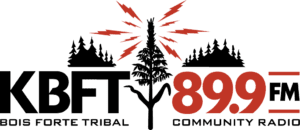Soldiers from the Florida Army National Guard began clearing debris from Hurricane Milton on the morning of October 10, 2024. Photo: Florida National Guard
The two federally-recognized tribes in Florida are dealing with the effects of Hurricane Milton after the catastrophic storm made landfall on their homelands.
The Miccosukee Tribe has closed its administrative offices for the day, Chairman Talbert Cypress said in a post on social media. “The Business Council will assess when we will reopen at a later time,” he wrote on Wednesday as Milton reached Florida as a Category 3 hurricane, with high-speed winds, heavy water surges and even tornadoes among its most visible impacts.
“Please stay safe,” Cypress added.
Meanwhile, the Miccosukee Indian Village, one of the tribe’s most well-known cultural, educational and tourism attractions, has been closed due to the storm. “We will reopen on Saturday,” a post on social media read.
But the Miccosukee Casino & Resort, just down the road from the village, is open for business. “Our thoughts are with those affected by Hurricane Milton,” the website of the tribe’s gaming facility reads as of Thursday morning.
“We are ready to welcome you to Miccosukee Casino & Resort, where we will ensure a safe place to stay,” the facility, located outside of Miami in southern Florida states.
The Seminole Tribe is also reassuring patrons about safety. One of its gaming facilities, the Seminole Hard Rock Hotel & Casino Tampa, is located in western Florida, and Hurricane Milton had been feared to directly hit the state’s third most-populous city.
Milton ended up making landfall near Siesta Key, about 65 miles south of Tampa. The casino canceled a concert that was scheduled for Thursday night but the facility otherwise remains open, although some amenities are operating on a limited basis due to the storm.
“Hurricane Milton no longer poses a threat to any of the Reservations and Communities,” the Seminole Tribe’s Office of Emergency Management said in an advisory posted on social media on Thursday morning.
The tribe’s emergency management staff had a busy Wednesday as Milton passed through Seminole homelands. At one point during the day, almost every tribal community across the state was under a flash flood emergency, a flood watch, tropical storm warning, a hurricane watch, a hurricane warning, a wind advisory and a storm surge warning.
“Tribal departments are working hard to respond to the aftermath of Hurricane Milton,” emergency management said on Thursday morning.
“Currently, the Brighton, Fort Pierce, and Big Cypress Reservations still have power issues,” the advisory states. “The electrical companies have been notified of the outages and we are awaiting updates. Please avoid flooded areas, stay away from downed power lines and use caution while driving.”
Seminole tribal schools have been closed since Tuesday in anticipation of the storm. The Miccosukee Indian School, serving students from the Miccosukee Tribe, closed after having an early dismissal on Tuesday.
“We hope everyone stays safe,” a post on social media reads. “We should be able to return to normal operations on Friday!”
Social media users posted a number of photos and videos of tornadoes near a section of the Miccosukee Reservation known as Alligator Alley. According to one independent journalist who collected footage shared by others, a tornado was spotted a few miles from the Miccosukee Service Plaza, located along a busy interstate. The tribal police department had warned people to stay off roads on Wednesday night.
“We’ve already approved emergency declarations for Florida,” President Joe Biden said from the White House early Wednesday evening. “We have thousands of federal personnel on the ground, and we have staged and are ready to go. We have 20 million meals, 40 million liters of water.”
Last night I was able to call the Miccosukee Tribe of Indians Chairman Talbert Cypress before #Milton’s landfall. I assured him that @fema & @femaregion4 are ready to support the Miccosukee Tribe of Indians with their response & recovery efforts before, during, & after the storm. pic.twitter.com/Cm5E3Y7rek
— Deanne Criswell (@FEMA_Deanne) October 9, 2024
Deanne Criswell, the Administrator of the Federal Emergency Management Agency (FEMA), also promised support. In a post on social media, she said she spoke with Miccosukee Chairman Cypress ahead of the storm.
“I assured him that @fema & @femaregion4 are ready to support the Miccosukee Tribe of Indians with their response & recovery efforts before, during, & after the storm,” Criswell said in the post.
Criswell is heading to Florida on Thursday from North Carolina, where residents are still reeling from the deadly impacts of Hurricane Helene. The western part of the state, where the Eastern Band of Cherokee Indians (EBCI) is located, was among the heaviest hit by the storm.
The Qualla Boundary, as the tribe’s reservation is commonly known, experienced power outages and property damage, Principal Chief Michell Hicks said in a video update on Sunday. But the tribe was largely spared from the devastating losses seen by its neighbors in western North Carolina.
“Our recovery and relief efforts are dedicated to helping our neighboring communities,” Hicks said. “I want to assure you that the EBCI is committed to supporting those in need. We continue to send crews, teams, volunteers to deliver essential items to affected areas and our relief efforts continue to grow as we are actively collecting donations to provide ongoing support.”
The Cherokee Nation, a sister tribe to the Eastern Band, also continued its recovery efforts. The tribe, now headquartered in Oklahoma, has sent food, donations and 38,000 bottles of fresh water to North Carolina.
“The Cherokee people have always stood together in times of need. Our hearts go out to our brothers and sisters in the Eastern Band of Cherokee Indians who have been affected by Hurricane Helene,” Cherokee Nation Principal Chief Chuck Hoskin Jr. said in a news release on October 4. “By delivering these essential supplies, we hope to provide not just relief, but also a reminder that they are not alone in this recovery. Together, we are stronger, and we will overcome these challenges.”


